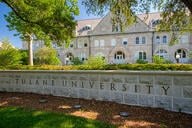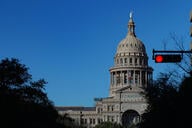You have /5 articles left.
Sign up for a free account or log in.
The University of Toronto is backing the world’s first ever “anti-psychiatry” scholarship, spearheaded by a professor who denies the existence of mental illness and, by extension, the need for mental health care.
Bonnie Burstow, namesake of the scholarship and associate professor in adult education and community development at the university, has offered to match up to $50,000 of her own money to fund the scholarship, which would be awarded annually to a graduate student researching anti-psychiatry.
She has received at least $12,000 in donations toward the scholarship, The National Post reported last week. “A quite large number [of donors] are parents of kids who have been hurt by psychiatry and want to see this line of research encouraged,” she told the newspaper.
Burstow, who has been with the University of Toronto since 1995, has worked closely with psychiatric “survivors,” according to her profile on the university’s website, and is a “world-renowned critic of institutional psychiatry.” She argues that any form of psychiatric treatment is a direct violation of human rights.
“Psychiatry’s tenets and claims do not stand up to scrutiny. We do not have to begin by trying to prove that,” Burstow told the Post. “I am saying these are not diseases. … There is not a single proof of a single chemical imbalance of a single so-called mental illness.”
Of course many faculty members at Toronto and elsewhere say that evidence is abundant, and that arguing against the concept of mental illness is irresponsible and could be dangerous to people struggling with mental illness. Some say this goes beyond an academic disagreement -- and the university should not be supporting this work.
Burstow declined to comment for this story and instead deferred to a university spokesperson.
In an announcement posted on its website, the university justifies the scholarship on the basis of equity and academic freedom, calling it a “historical breakthrough” that “materialized at an opportune time.”
But many academics have expressed outrage with the university.
“Normally in university life, we welcome a lot of different points of view,” said Edward Shorter, a professor of psychiatry at the University of Toronto and expert in the history of medicine, in an interview. “But that balance doesn’t really apply to some things … and it’s unacceptable for us to pretend that balance applies to this issue.”
The effectiveness of penicillin, the occurrence of the Holocaust, the existence of mental illness -- these are things we know to be true, Shorter said, adding that Burstow’s scholarship is the “intellectual equivalent of fake news.”
“We’re really on very thin ice when we start tolerating people who say a medical field has no legitimacy,” Shorter said. “This is dangerous for the public. If you put the idea out there that there is no such thing as mental illness and treatments are worthless, people are going to commit suicide.”
He said he was “terribly embarrassed” for the university and hoped the administration would soon reverse course, but that doesn’t seem likely.
Despite the negative reaction to the scholarship, the university continues to defend Burstow and her “right to pursue questions of interest and controversy,” said Charles Pascal, a professor of applied psychology and human development at Toronto. In fact, Burstow has received many emails from people who support her anti-psychiatry research and want to thank her for the scholarship, Pascal said.
From an academic standpoint, Pascal believes Burstow has every right to question the science, because her skepticism will foster important debates among other scholars. On a personal level, he disagrees with her position. “I disagree with her comments, absolutely, but I also think the conversations I have with her make us both better in being able to sharpen our views and improve our practices,” Pascal said.
Glen Jones, dean of the Ontario Institute for Studies in Education, which established the scholarship, said in a statement that the institute does not discredit the field of psychiatry but it does defend Burstow’s right to debate it.
“Key to our quest for the ‘truths’ we seek is the notion that, as scholars, we need to feel comfortable in the gray zone, that we constantly strive for something that moves us closer to truly understanding an idea or improving a practice,” Jones said.




